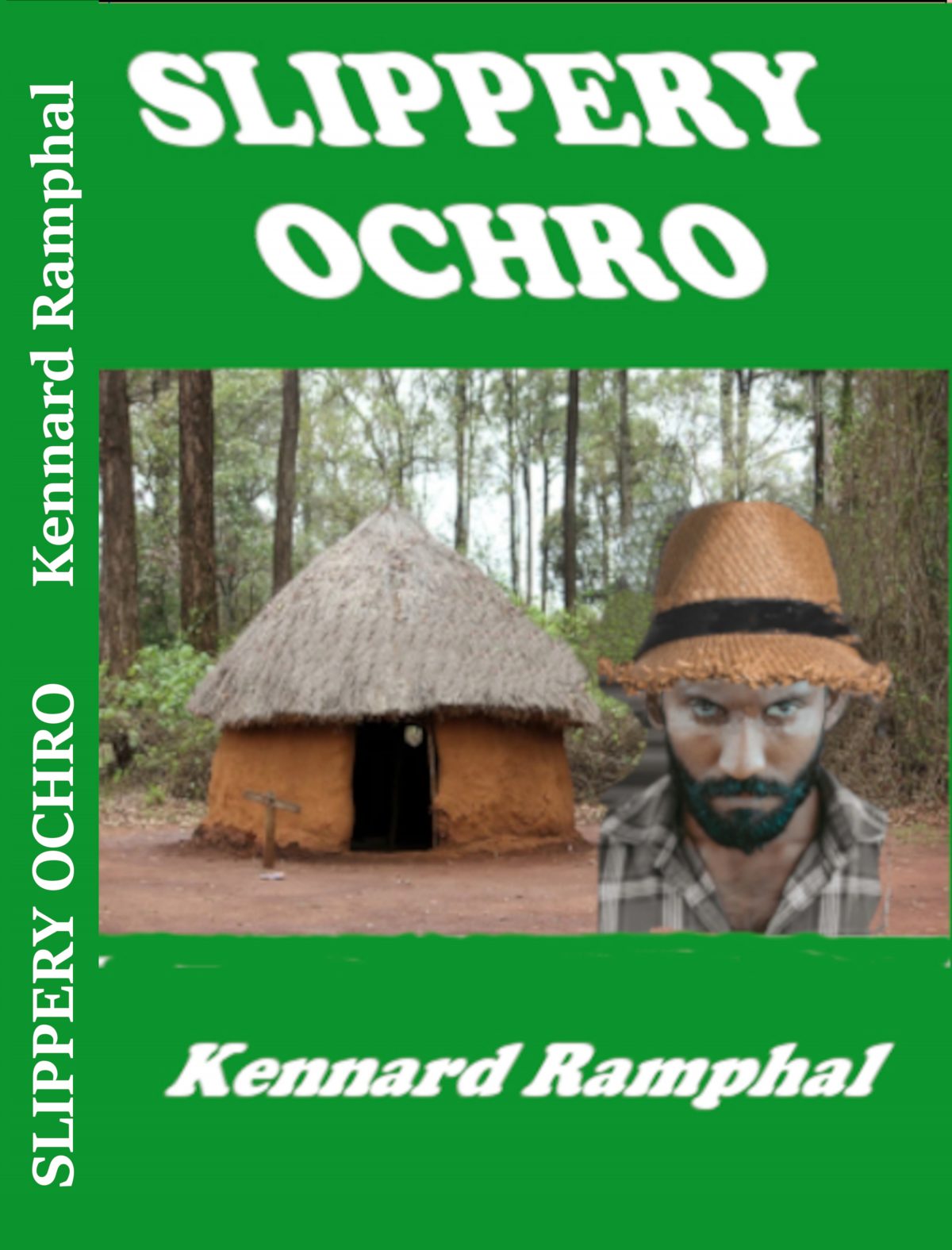Reviewed by Gokarran Sukhdeo Winner, Guyana Prize for Literature, 1998
Dr. Kennard Ramphal’s latest novel is an intriguing commentary in social psychology structured around an antagonist, the like of which seems to actually exist in every society – a smooth, slippery individual who possesses a pathologically manipulative characteristic that enables him to carve a comfortable, cushy living off his close associates – a characteristic that lacks shame, social responsibility and empathy for fellow humans. Curiously, I must add that I came across such characters in a master’s psychology program, and, in all the cases, found them to be of an above normal intelligent quotient. In short, they are smarter than, can easily outsmart the average citizen and for them, it is the end, not the means that matters. Their lifestyle, although latently non-violent, is not dissimilar to bullyism. Bordering to criminality, it is a social parasitism, the practice of which is only successful to the extent that host members of society are either tolerant, long suffering, sympathetic, naïve, scared, or perhaps afraid to have their social reputation damaged. Not just individuals, but sometimes a whole society can become the victim, especially if that society is rustic and somewhat remote and removed from the mainstream, as was Canal Number Two Polder at the time the novel is set, in the mid twentieth century. Kennard Ramphal’s keen literary style pits an entire village of individuals possessing all the above ‘weaknesses” against a single indomitable arch-rival, appropriately nicknamed, Slippery Ochro. But the practice of such villainy can only be successful with all the people some of the time, some of the people all the time, but never with all of the people all of the time. Eventually they fall victim to their own constructs, they outsmart themselves. Thus, Kennard’s anagnorisis climaxes when Slippery Ochro’s own weapon – his lawsuit, brought against another genuine Village citizen and shop keeper, Mr. Prashad whose most trivial remark Ochro twisted and blew up into a major defamation case, backfires in his face. Immediately for Mr. Ochro, all things fell apart; the center could not hold, and mere anarchy was let loose upon his world. But atypical of such nomadic sneaks, Ochro and his wife quickly fold their tent and stealthily creep away in the dark of night to set up practice in some other faraway unsuspecting community.
As in his other works, Ramphal’s fifth novel again harnesses real-life existing dualities, both in individual characters, as well as in society to render his images realistic. For instance, the chief antagonist, Slippery Ochro is himself a parody of R.L. Stevenson’s, Dr. Jekyll and Mr Hyde, whose sweet talk only thinly covers some very dangerous intentions. He is as loathsome as he is likeable. Multiple dualisms are also seen in the character of victimized protagonist, Mr. Mohabir. He is seen as an upright, leader in the Village, a man of social integrity one who sits in and makes decisions at the Village Panchayat, yet he cowers before Slippery Ochro, is afraid, hides behind his wife to make decisions, he shirks and procrastinates, appearing naïve at times, and, like most Indo-Guyanese drinks to cover it all up. There is even a dualism of good and evil as the man of integrity succumbs to the guiles of Ochro’s wife, Phulmattie. Then he hides his adulterous secret. But the reader understands, pities him, might even forgive him. Because there is the prevailing duality whereby his most esteemed social strengths of kindness, affluence and influence become the very weaknesses that Slippery exploits to the maximum. Ironical, how in life, like the biblical Samson, the very strengths we boast about can become the cause of our downfall. He is forgiven, he is human, like all of us who, according to Carl Jung, possess that “shadow archetype” which represents “the dark side” of our personalities, a tumultuous sub-world of our psyche where we store the most primitive, primordial parts of ourselves. Thus, in the end, Ramphal exonerates Mr. Mohabir, and even his wife, Dularie for becoming a regular rum drinker, something only done in secret in such cloistered Canal community. Afterall, it was not their calculated fault; it was Ochro and his wife, Phulmattie who beguiled Phulmattie into becoming a regular rum drinker, and her husband, Mohabir into an adulterer.
The reader cannot help admiring how Ramphal is enamoured with his umbilical Canal Polder which he departed half a century ago, but in his mind remains the idyllic, independent hamlet, frozen in cultural patterns of the midcentury. Even the vernacular is uniquely Canals Polder. It is not a simple thing to do in making a uniquely localized vernacular widely readable, an art Kennard has obviously mastered, of course making rich use of footnotes to aid the reader. Using local vernacular makes any story familiarly realistic and down to earth, which incidentally reminds me of Rooplall Monar, Peter Jailall, Brenda Do Harris and Oonya Kempadoo, Guyanese writers who have all been very successful in the use of localized dialects.
Dr. Kennard Ramphal is retired education officer and anti-racist consultant with the East York Board of Education, Ontario, having migrated to Canada in 1975.
He is a former Captain in the Guyana Defence Force and was badly injured in an explosion during the quelling of the Rupununi rebellion in January 1969. He later served as Aide-de-camp to the first President of Guyana, Arthur Chung. Hailing from Canal Polder, he first started teaching in the early 1960’s at the Wales Canadian Mission School where he began as a Pupil Teacher and left as Senior Master for cadetship to Sandhurst Military Academy.

